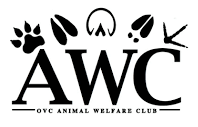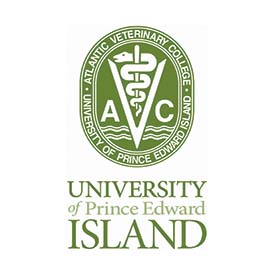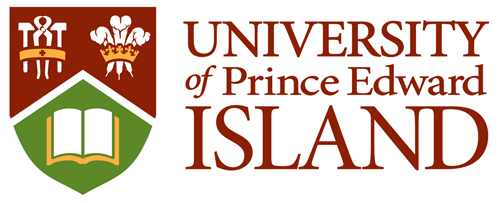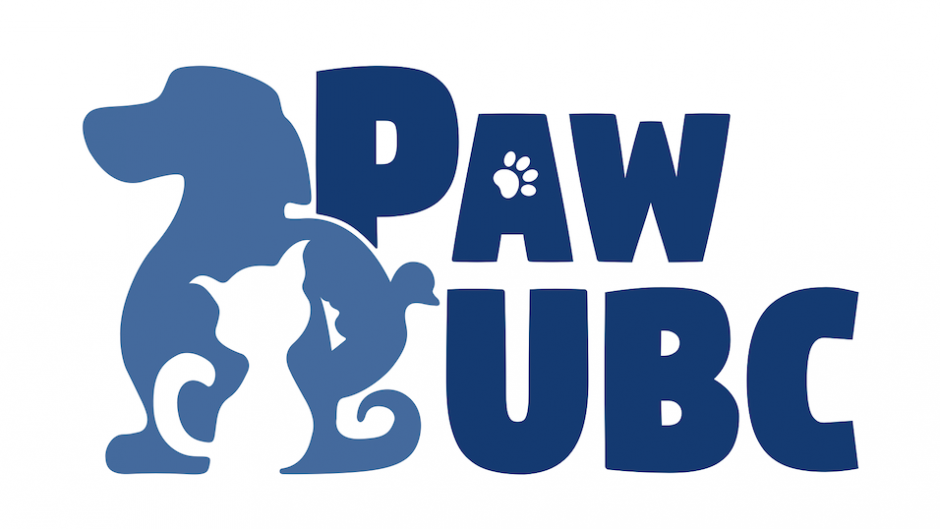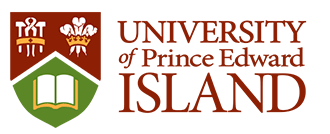Atlantic Veterinary College Animal Welfare Club – 2011 Report
Annual Animal Welfare Conference
The AVC Animal Welfare Club co-hosted our annual conference in conjunction with the Sir James Dunn Animal Welfare Center (SJDAWC). The 2010 topic was ‘Animal Welfare in Practice: Exotic Pets’ and we are proud to report that we had the largest turnout since the founding of this conference. Attendees included veterinarians and veterinary technicians from the Maritime provinces as well as many veterinary students and members of the public. Keynote speakers included Dr. Doug Whiteside, exotics specialist and senior staff veterinarian from the Calgary Zoo, who spoke on ‘Considerations when getting an exotic pet’ and ‘Behavioural issues in small mammals, birds, and reptiles’. Dr. Stéphane Lair, specialist and professor of zoological medicine at the Université de Montréal, spoke about ‘Ethical considerations for veterinarians working with exotic pets,’ and AVC’s own exotics specialist Dr. Marion Desmarchelier discussed ‘Pain management in small mammals, birds, and reptiles.’ For the first time ever this conference also included laboratory sessions with hands on experience in handling and environmental enrichment of exotic pets put on by Ssafe Haven Reptile and Amphibian Rehabilitation Center and faculty from the AVC. The laboratory sessions were extremely well received and we plan to continue this tradition for next year’s conference, which will focus on lameness in dairy cattle. The AWFC’s generous contribution was used to help fund the airfare and accommodations for the speakers, as well as the necessary provisions for the conference itself. The continuous support of the AWFC was acknowledged at the conference.
Conference Follow-up Session & Animals On Campus Committee
This year the Welfare Club decided to allocate some of the conference funding towards a follow-up session which will apply some of the principles learned to a real life scenario. Dr. Marion Desmarchelier has agreed to lead a discussion with students who attended the conference on exotic species which will focus on how we can make improvements to AVC’s current housing and enrichment programs to improve the welfare of the exotic species in our care. This session is scheduled to take place in the coming 2011 school year.
The club would also like to make this follow-up session into a permanent tradition and will be founding the Animals On Campus committee in the upcoming school year. This committee will consist of interested students who will attend the annual conference and then meet several times throughout the school year with applicable faculty to learn about evaluating welfare scenarios. They will then perform an assessment and come up with a realistic and relevant project to improve the lives of our own teaching animals. Next year’s conference will focus on lameness in dairy cows and the Animals On Campus committee will use the knowledge learned at the conference to perform an assessment on AVC’s teaching cows. Funding has been set aside to support this project for next year.
Senior Student Rotations in Animal Welfare
The AVC Welfare club wished to use some of our funding this year to support welfare education for future veterinarians. This year we encouraged 4th year students to pursue clinical rotations related to animal welfare by providing financial support to deserving students. Students submitted essays demonstrating their financial need and outlining how their experience will educate them on welfare issues. They also had to come up with a way to share their knowledge with their fellow students. Three awards were given to selected students who will be on their rotations in the next few months. The successful applicants are required to share their experiences and knowledge with the AVC student body upon their return through a presentation or other approved method of their choice.
Lunch Time Lectures, Promotions and Student Support
The remainder of the AWFC funding was used to support the general Animal Welfare Club activities for the year. These activities include co-hosting lunch time lectures on topics related to animal welfare and promoting club activities. Each year AVC sends a team of students to the annual Animal Welfare Judging Competition at Michigan State University. This year the club provided funding to support the travel expenses of five students who attended the competition in November and acquitted themselves well, placing third overall.
Comité Étudiant pour le Bien-être Animal – Rapport 2011
Mandat
Le Comité Étudiant pour le Bien-être Animal (CEBA) regroupe des étudiants en médecine vétérinaire dont la principale préoccupation est le bien-être et le respect des droits des animaux. L’objectif premier de ce groupe est d’améliorer les conditions de vie des animaux résidant à la Faculté de médecine vétérinaire (FMV) de l’Université de Montréal. Le CEBA s’implique aussi dans l’éducation des futurs vétérinaires et dans la sensibilisation du public via la présentation de conférences et d’ateliers concernant le bien-être animal. Dre Josée Dupras, directrice de la division Fermes et animaleries de la FMV parraine le CEBA depuis plusieurs années.
Projets
Animateliers
Le projet des animateliers, anciennement nommé programme de prévention des morsures, existe depuis quelques années à la FMV et a pour objectifs principaux de réduire l’incidence des morsures causées par les chats et les chiens, de diminuer le nombre d’euthanasies suite à ces agressions et de faire connaître la médecine vétérinaire au grand public. Des équipes d’étudiants en médecine vétérinaire visitent des écoles primaires et secondaires pour présenter aux jeunes des moyens permettant de reconnaître le comportement et le langage corporel d’un animal agressif ou effrayé qui pourrait mordre. La façon sécuritaire d’approcher un animal, la meilleure réaction à avoir en cas d’attaque, un petit aperçu de ce qu’est la médecine vétérinaire et quelques autres sujets sont également abordés.
Site web
Notre site web nous permet de nous faire connaître à travers toute la communauté et d’afficher les animaux prêts à l’adoption. Il comprend une description détaillée de tous nos projets, des liens vers différents sites internet sur le bien-être animal ainsi que des capsules d’informations. http://www.ceba-fmv.ca
Conférences
Le CEBA organise plusieurs conférences chaque année. Lors des deux dernières années, le CEBA a notamment présenté des conférences portant sur l’organisme Anima Québec présentée par Yannick Thibault, sur les droits des animaux présentée par Me Martine Lachance et sur le bien-être animal au Québec présentée par Dr Joël Bergeron. Cette année, le CEBA veut aussi défrayer les coûts de transport et d’inscription à deux de ces membres pour assister au colloque en droit animal organisé par le GRIDA qui se tiendra le 20 mai 2011 à Ottawa. Pour l’an prochain, le CEBA a plusieurs idées de conférences notamment sur la chasse au phoque.
Concours de photos
Pour une 2e année, le CEBA a organisé un concours de photographies sur le thème : « Le bien-être animal à la FMV ». Ce concours nous a permis de sensibiliser la population facultaire au bien-être animal, de nous faire connaître à travers la Faculté et d’encourager le parrainage des animaux d’enseignement et donneurs de sang. Les photos ont été développées puis affichées sur un babillard afin que les gens puissent voter pour leur photo préférée. Des pancartes avec la description de nos activités étaient aussi présentées pour que les visiteurs puissent prendre connaissance de nos projets. Un prix a été remis au gagnant du concours et les photos seront éventuellement placées sur notre site web.
Programme de don de corps
La dissection et les exercices chirurgicaux sur des animaux décédés sont une part très importante de l’éducation du futur vétérinaire. Le programme de dons de corps vise à réduire le nombre d’euthanasies d’animaux en santé en permettant aux propriétaires faisant euthanasier leur animal au CHUV de la FMV de donner le corps de ce dernier pour l’enseignement. Le projet est en cours de développement et avance très bien. Un formulaire d’acceptation de don de corps a été rédigé et est maintenant disponible au CHUV. L’an prochain, nous organiserons une rencontre d’information avec les cliniciens et les internes du CHUV afin de promouvoir ce projet.
FUSA (Fond d’Urgence en Santé Animale)
Le FUSA est un fond destiné à offrir des soins d’urgence de base aux animaux de la FMV lorsque la somme impliquée dépasse celle allouée par la Faculté pour le soin de ses animaux. Aussi, en plus de servir à payer des soins et des traitements, cette ressource monétaire est utilisée pour défrayer l’hébergement des animaux d’enseignement retraités qui n’ont pas encore trouvé de foyer. Bref, le FUSA sert à combler le manque! Le FUSA représente des coûts annuels récurrents dont le montant exact est impossible à prédire.
Parrainage des animaux d’enseignement et donneurs de sang
À la FMV, plusieurs animaux (chats, chiens, juments et vaches) sont utilisés à des fins d’enseignement. Ces animaux permettent aux étudiants en médecine vétérinaire de développer leurs habiletés techniques (contention, administration de traitement, prise de sang, anesthésie, etc.) afin de bien exercer leur futur métier. De plus, la FMV héberge des chats et des chiens donneurs de sang qui permettent de sauver de nombreuses autres vies animales. Ces animaux dévoués méritent donc notre attention! C’est pourquoi, tous les étudiants de la FMV sont invités et encouragés à visiter nos animaux d’enseignement et donneurs de sang afin de les brosser, de les cajoler, de jouer avec eux et de les socialiser. En plus de sensibiliser les étudiants à l’utilisation d’animaux pour leur propre apprentissage, le programme de parrainage permet aux animaux de vivre une expérience positive avec les humains contrairement à certaines manipulations vétérinaires. Aussi, à la fin de leur mandat, les chiens et les chats sont mis à l’adoption afin qu’ils demeurent dans un foyer accueillant. Le CEBA promeut l’adoption de ces animaux en créant de la publicité à travers la Faculté. De plus, le CEBA fournit aux nouveaux propriétaires des chats et des chiens d’enseignement une trousse de départ contenant plusieurs objets (laisse, bols, jouets, brosse, gâteries, etc.) ainsi qu’un guide d’information. Cette année, le CEBA a aussi lancé un nouveau projet d’enrichissement des chiens d’enseignement. Ce programme vise à éduquer et à socialiser les chiens d’enseignement en vue de leur adoption future. Les étudiants sont jumelés à un ou deux chiens et sont responsables de les visiter régulièrement et de leur apprendre les commandements de base.
Enrichissement des milieux des animaux de la FMV
Le CEBA s’engage dans l’amélioration du bien-être des animaux de la FMV à chaque année en leur offrant de nouveaux jouets, lits, gâteries, etc. Cette année, nous avons fourni de nouveaux jouets et lits pour les chats d’enseignement. Nous avons aussi acheté des licous (nose-band) pour nos juments d’enseignement afin d’améliorer leur confort. Le CEBA se procure régulièrement des gâteries pour le programme de renforcement positif des juments. Ce programme permet de récompenser les juments d’enseignement lors de manipulations difficile afin de réduire leur stress et de faciliter l’apprentissage des étudiants. L’an prochain, le CEBA prévoit fournir un escalier d’exercice pour l’enclos des chiens d’enseignement ainsi qu’une nouvelle mangeoire pour les juments d’enseignement.
Polycopies
Afin de se faire connaître à travers la Faculté et de promouvoir ses projets, le CEBA imprime régulièrement des signets qui sont distribués à la FMV. De plus, le CEBA distribue des pamphlets afin de promouvoir le programme de dons de corps auprès des cliniciens du CHUV. Aussi, le CEBA imprime des affiches avec les photos des animaux d’enseignement prêts à l’adoption afin de leur trouver un foyer parmi les gens de la Faculté. Enfin, le programme de parrainage est affiché et annoncé de nouveau à chaque année afin de promouvoir les visites par les étudiants. Aussi, une liste de produits non testés sur les animaux a été produite par le CEBA et est distribué parmi les étudiants intéressés.
Ontario Veterinary College Animal Welfare Club –
2011 Report
October 2, 2010. “11th Annual Animal Welfare Forum”
A day-long event organized by the executive over the previous year, with talks on palliative cancer care in pets, caring for organic dairy cattle and the abolitionist philosophy of animal rights, as well as a panel discussion on the Canadian seal hunt.
November 20-21, 2010. “Animal Welfare Judging Competition”
The Animal Welfare Club helped fund the OVC Student Team’s participation in the Intercollegiate Animal Welfare Judging and Assessment contest, held at Michigan State University.
November 15, 2010. “Reporting Animal Cruelty”
The Animal Welfare Club hosted a joint lunch talk with the OVC Bovine Club. Mike Draper, the Livestock Community Sales Act Coordinator for OMAFRA, spoke regarding what constitutes a veterinarian’s responsibilities for reporting animal cruelty.
November 29, 2010. “Assessing Pain Behaviour”
The Animal Welfare Club hosted a joint lunch talk with the OVC Behaviour and Pain Management Clubs. Lee Neil, our new faculty advisor, gave a talk regarding current research in the area of pain behaviour assessment.
March 3, 2011. “Confessions of an Undercover Conservationist”
Author Leah Lemieux will discussed marine mammal welfare in captivity and in the wild, sharing her astonishing discoveries that reveal why dolphins and whales are under threat, both in Canada and elsewhere, with a short lecture and film.
March 16, 2011. “Ontario Livestock Exchange: Pre-Talk”
Penny Lawlis, a Human Standards Officer and Mike Draper, the Livestock Community Sales Act Coordinator for OMAFRA spoke to our members regarding some of the issues associated with livestock auctions in preparation for a tour.
March 19-20, 2011. “College Royal Club Exhibit”
The Animal Welfare Club created a display with information regarding welfare issues concerning pets, livestock, and wildlife. Our main goal this year was to educate the public regarding dog bit prevention. We presented a display of pictures, diagrams and verbal explanations on “How To Read Your Dogs Body Language” and distributed children’s colouring books that illustrate how to play safely with dogs, along with a pamphlet published be the OSPCA. Our display received a 2nd place ribbon!
March 24, 2011. “Ontario Livestock Exchange: Tour”
Interested AWC members were given a tour of the exchange by faculty advisor Dr. Derek Haley. We were given a chance to observe the welfare of cattle and horses at the exchange. A week later, an OMAFRA humane standards officer discussed what we saw and answered questions for us.
April 7, 2011. “Care-a-thon Animal Welfare Research Scholarship”
The Animal Welfare Club funds a scholarship given to the graduate student whose research is likely to have the most practical application to the improvement of animal welfare. This year the award went to Marianne Villettaz Robichaud, a PhD candidate in the department of population medicine at the OVC studying dairy cow welfare.
February 1, 2011-Present. “Animal Welfare Forum 2011 Planning”
There have been several AWC members actively involved in the planning of the 2011 Forum, attending weekly meetings, providing input, and contacting and confirming speakers. Possible topics to be covered at the 2011 Forum include:
- Equine Welfare in the entertainment industry, such as the Calgary Stampede
- Elective procedures in companion animals
- Zoo and marine animal welfare
- Livestock predation and urban safety with respect to coyotes
Western College of Veterinary Medicine Animal Welfare Club
– 2011 Report
Animal welfare was well represented this year at WCVM. Several students attended the Saskatoon SPCA Animal Welfare conference in September where they participated in wet labs and learned from a well-rounded panel of speakers. In November, Dr. Alice Crook spoke about animal abuse as part of CVMA’s Animal Welfare lecture tour.
In January, the Western Canadian Association of Bovine Practitioners held their conference and AGM in Saskatoon. The Animal Welfare Club invited two of their speakers to visit WCVM for lunchtime talks to the student body. Dr. Ed Pajor’s presentation, entitled ‘Animal Welfare: A Contemporary Issue for Animal Agriculture’, filled the room with students, staff and faculty. The club provided pizza and soda pop for student attendees. Dr. Temple Grandin’s talk was widely publicized and the Animal Welfare Club received a request to have 400 psychology students attend! This resulted in webcasting her presentation across campus to the Neatby Timlin Theatre in the Arts Building and two rooms within WCVM. The room she spoke in was filled to capacity! The expenses of this event were shared equally by the Animal Welfare Club and Dean Freeman of WCVM. The Animal Welfare Club was thrilled to be able to share these excellent speakers to such a wide audience, beyond the WCVM student body! In addition Prof. Donald Broom also visited the college following the WCABP meeting in Saskaton and spoke to the 1st year class on World Developments in Animal Welfare – Science and Public Attitudes.
The 2010- 2011 WCVSA executive also considered animal welfare issues important. In late January, they screened the Temple Grandin movie at WCVM. Popcorn was sold by donation and proceeds went to the SPCA. In February, 2 animal control officers were invited to speak about animal abuse and cruelty investigations.
Some of the Animal Welfare Club plans for the coming year include collaborating with the WCVM Bovine Club in bringing Dylan Biggs for his “Low Stress Cattle Handling” lab, which is always poplar! We also hope to send a team of students to the Michigan State University Judging Competition in the fall. Club members were unable to attend last year due to scheduling issues, but thanks to your generous support, funding should not be a significant issue for next year’s team. We have also been collaborating with WCVM students interested in volunteer work with groups such as RAVS, Global Vets, Vets without Borders, CAAT, World Vets to widen our membership base and provide networking opportunities to like- minded individuals.
On behalf of the WCVM Animal Welfare Club, I wish to extend my thanks for your continued support in our endeavors.
